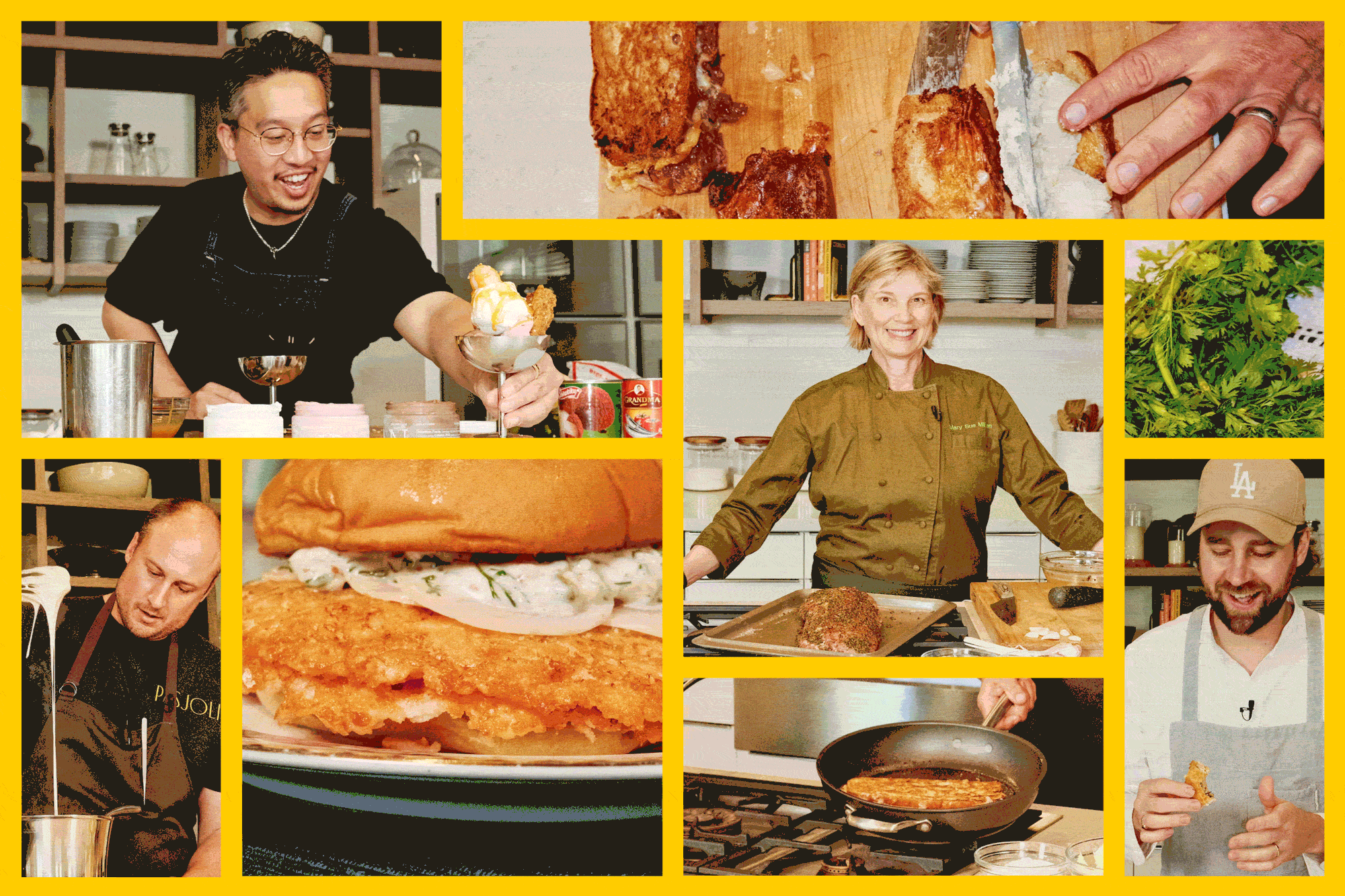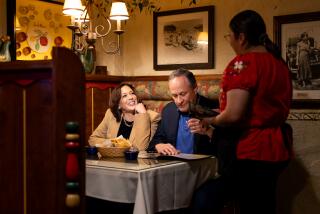The Perfect Fauxstess
- Share via
Who among us does not aspire to be the kind of hostess who can whip up a gourmet feast for 12, regale her guests with stories from her high-profile and head-spinningly busy career, and then get the whole mess cleaned up for an early bedtime and a 10-mile run the next morning?
Such a person makes us all feel like failures by comparison, and never mind that he or she does not exist in nature. But in an era when hosting has been elevated from a form of good manners to a form of performance art, how do we maintain our social standing without assuming a permanent position over a hot (and preferably Viking) stove?
By faking it, of course. Though some status-conscious hosts will enroll in French cooking school to keep up with the gastronomists next door, certain shortcuts--such as picking up prepared foods from a supermarket or restaurant--have become perfectly acceptable. And though most hosts make no attempt to hide those “to-go” containers, there is a new breed of home entertainer who tries to pass off even elaborate prepared foods as homemade. Call this hapless creature the “fauxstess.”
A former San Francisco executive remembers trying so hard to impress a colleague that she invited him over for steak au poivre. “I was in my 20s and had just been promoted, and I was trying to win his favor because he was skeptical about my qualifications,” recalls the one-time fauxstess (who prefers to remain anonymous). “I’d been taking French cooking lessons and he’d heard me talking about it, so I invited him over. And, of course, it was a disaster.”
Fortunately, the nearby French bistro Fringale was staffed by a compassionate chef. He whipped up a replacement meal that not only tasted as if, ahem, it came from a renowned restaurant, but it was arranged to look as if it had just come out of her oven. (She says the meal won over the doubting colleague.)
The key to successful fauxstessing, aside from a good poker face, is choosing dishes that aren’t closely associated with particular establishments. “People try to get away with all sorts of things,” says Evan Kleiman, host of KCRW’s “Good Food” and owner and executive chef of L.A.’s Angeli Caffe. “If people are going to say they made it themselves they have to hope that their guests aren’t Angeli customers. We have some signature dishes, like our beet gnocchi, that are pretty recognizable.”
Good advice. Alas, it’s not always heeded. “In London, I knew someone who would order dinner from Memories of China, one of the most well-known Chinese restaurants in town, and serve it to her guests as if she’d cooked it herself,” says Katherine Taylor, author of the novel “Rules for Saying Goodbye.” “She was kidding no one, but she must have thought she was very clever.”
Hyper-competitive guests at potluck events have become no less devious at book clubs and other home-based social gatherings. Some buy prepared foods, transfer them into their own casserole dishes and smile coyly when asked for the recipe. (Correct answer: “I’ll e-mail it.”) This is the social corollary of fauxstessing, a trend perhaps soon to be known as the “notluck.”
“A lot of people will come in and say, ‘Help! I’m supposed to bring a dish to an event,’” says Beth Burns, manager of Santa Monica’s Marmalade Cafe. “We always say, ‘Bring your own platter in and everyone will think you did it yourself.’”
Of course, the mark of true confidence (and maybe even high social standing) is not caring what anyone thinks. “Slaving away in the kitchen when you’re a working person is not an indication of how good a person you are,” Kleiman says. “It’s about inviting people into your home and taking care of them. When I’m too tired to cook, I buy stuff from Whole Foods and I say to my guests, ‘Guess what? This is from Whole Foods!’
--
Gag Index
65% Pathetic
35% Prophetic
More to Read
Eat your way across L.A.
Get our weekly Tasting Notes newsletter for reviews, news and more.
You may occasionally receive promotional content from the Los Angeles Times.











